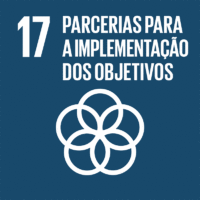Ciência-IUL
Comunicações
Descrição Detalhada da Comunicação
Environmental Treaty Secretariats as Attention-Seeking Bureaucracies: Cornerstones of an Analytical Framework
Título Evento
59th Annual Convention of the International Studies Association: “Power of Rules and Rule of Power”
Ano (publicação definitiva)
2018
Língua
Inglês
País
Estados Unidos da América
Mais Informação
Web of Science®
Esta publicação não está indexada na Web of Science®
Scopus
Esta publicação não está indexada na Scopus
Google Scholar
Abstract/Resumo
International treaty secretariats are increasingly seen as influential actors in global environmental policymaking. Yet, we still lack understanding of how and under which conditions they exert influence on multilateral environmental negotiations. So far, most scholars adopt a principal-agent perspective, arguing that bureaucracies hold preferences that deviate from those of their principals, thereby creating problems of oversight and control. According to this view, bureaucracies become influential because they operate "behind the scenes". We question this assumption by conceptualizing international treaty secretariats as attention-seeking bureaucracies. Rather than acting below the radar of their principals and the public in general, we expect treaty secretariats to actively seek the attention of the parties to multilateral environmental negotiations. We expect secretariats: 1) to be most influential at the stages of problem definition and agenda-setting. 2) Due to their limited powers, they need the attention of the negotiating parties in order to become influential. 3) We therefore expect them to advocate more or less openly for their policy positions. 4) They do so either directly by seeking the attention of negotiators or indirectly by building up support outside the negotiation arena. In both cases, treaty secretariats act as attention-seeking policy advocates rather than "undercover agents".
Agradecimentos/Acknowledgements
--
Palavras-chave
international public administration,environmental policy,global environmental governance,climate policy,biodiversity policy,international bureaucracy,international organizations
Classificação Fields of Science and Technology
- Ciências Políticas - Ciências Sociais
Contribuições para os Objetivos do Desenvolvimento Sustentável das Nações Unidas
Com o objetivo de aumentar a investigação direcionada para o cumprimento dos Objetivos do Desenvolvimento Sustentável para 2030 das Nações Unidas, é disponibilizada no Ciência-IUL a possibilidade de associação, quando aplicável, dos artigos científicos aos Objetivos do Desenvolvimento Sustentável. Estes são os Objetivos do Desenvolvimento Sustentável identificados pelo(s) autor(es) para esta publicação. Para uma informação detalhada dos Objetivos do Desenvolvimento Sustentável, clique aqui.

 English
English

